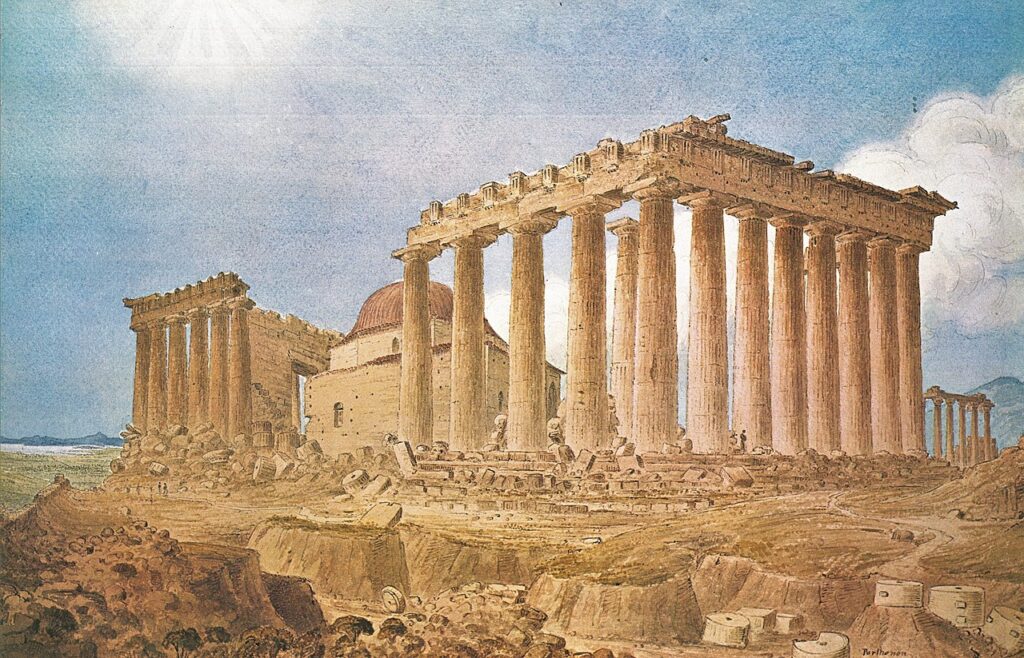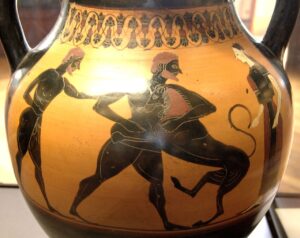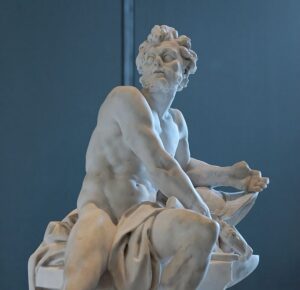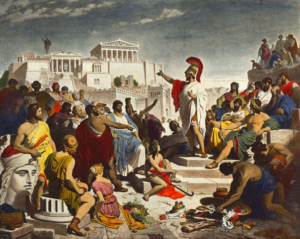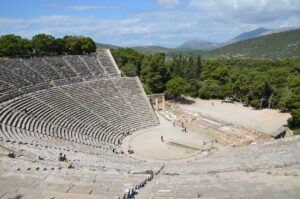The Parthenon of Athens is a magnificent temple located on the Acropolis of Athens, Greece. It was built in the 5th century BCE and is widely regarded as one of the most important buildings in Western civilization. The Parthenon is a symbol of ancient Greece and its rich cultural heritage, and it continues to attract millions of visitors from all over the world. In this article, we explore the history and significance of the Parthenon, and examine why it remains one of the most iconic structures in the world.
History of the Parthenon of Athens
The history of the Parthenon is important to understanding its overall importance in Greek history. The Parthenon of Athens was built in the 5th century BCE and was dedicated to the goddess Athena, the patron goddess of Athens. It was built on the Acropolis, a hill located in the center of Athens, and was designed by the famous architects Ictinus and Callicrates. The Parthenon was built using marble from Mount Pentelicus and was decorated with intricate sculptures. Furthermore, it was built during the rule of Pericles, as part of a massive building program to beautify and fortify the city.
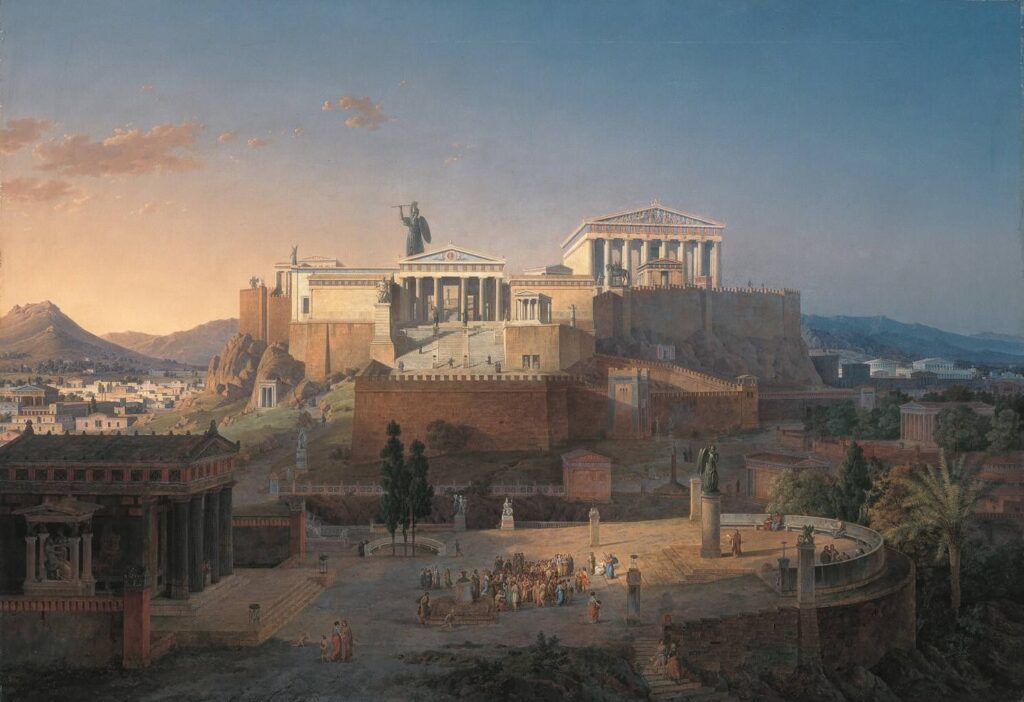
Significance of the Parthenon of Athens
The Parthenon of Athens is considered one of the greatest examples of classical Greek architecture and is a symbol of Ancient Greece. It is made of marble and is decorated with sculptures and reliefs depicting scenes from ancient Greek mythology.
The Parthenon was more than just a temple; it was a symbol of the wealth and power of ancient Athens. The Parthenon was built during the height of the Athenian Empire, and it was intended to show the world the grandeur and might of Athens. The Parthenon was also a symbol of the cultural achievements of the ancient Greeks, as it was decorated with works of art and sculptures that depicted their rich mythological heritage. As such, historians consider the Parthenon of Athens important to understanding the significance of religion in ancient Greece.
The Parthenon was not only a religious structure but also served as a civic and political symbol of the power and wealth of Athens during its time as the leading city-state of ancient Greece. The temple was also used as a treasury for the city-state of Athens during the time of the Delian League.
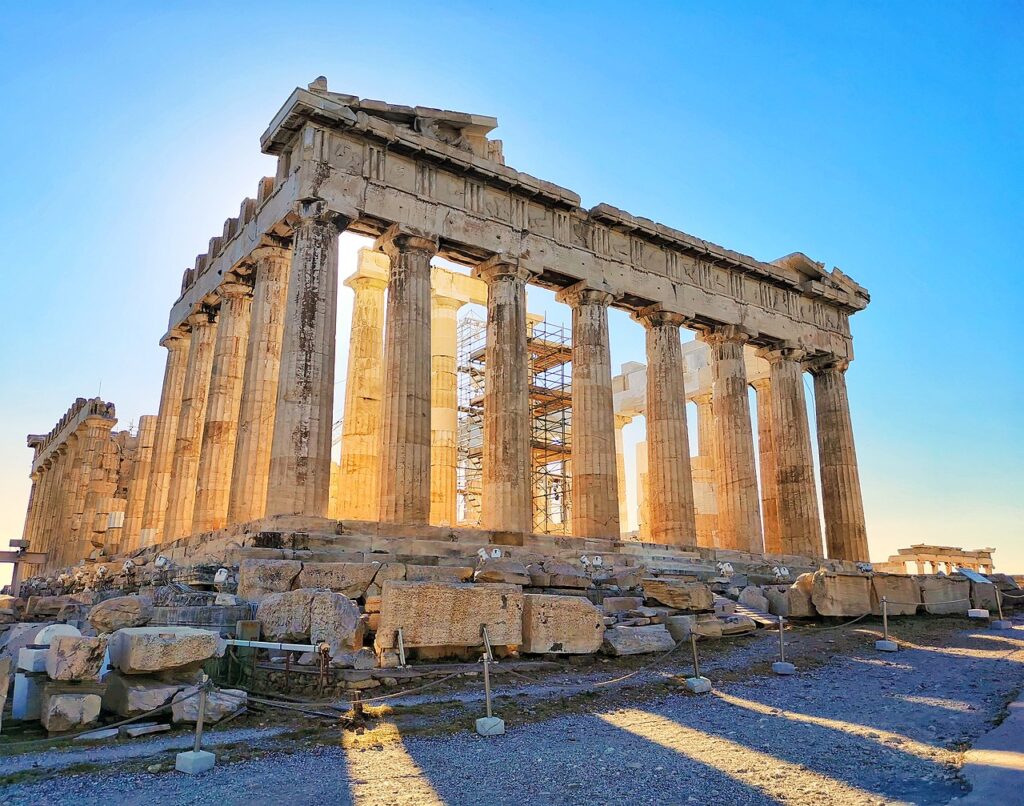
Legacy of the Parthenon of Athens
The Parthenon of Athens has survived for over 2,000 years and is still standing today. It is considered a masterpiece of ancient Greek architecture and is an important cultural and historical landmark. Over the centuries, the Parthenon has undergone many changes, including damage from wars and natural disasters. In the 5th century CE, it was converted into a Christian church dedicated to the Virgin Mary. During the 17th century, it was used as a mosque by the Ottoman Turks. In the 19th century, the Parthenon was excavated and restored by the British archaeologist Lord Elgin.
The Parthenon has had a lasting impact on Western culture and art. Its architectural design and use of proportions has inspired countless buildings and structures throughout the world, and its sculptures and reliefs have served as models for artists for centuries. The Parthenon is also a symbol of the enduring spirit of ancient Greece, and it continues to inspire visitors from all over the world with its beauty and grandeur.

